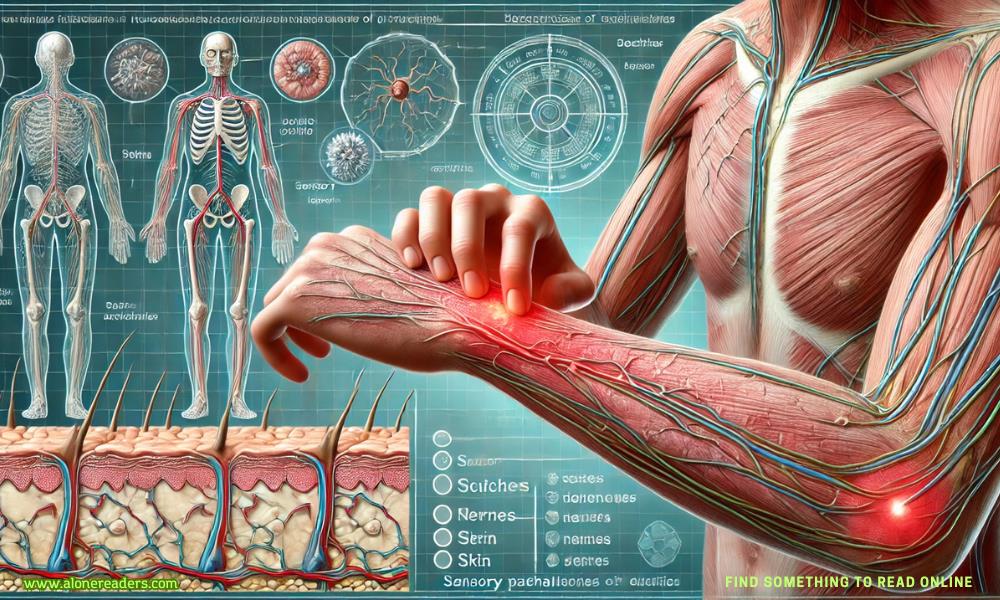
Itching, scientifically known as "pruritus," is a natural response your body uses to alert you that something may be amiss. This sensation often occurs when your skin detects potential irritants, abnormalities, or imbalances. While it might seem like a mere nuisance, itching serves a purpose, acting as a warning system that draws attention to the affected area. Scratching, the instinctive response to itching, might provide temporary relief but can sometimes exacerbate the problem if the underlying cause is not addressed.
Pruritus can arise from a multitude of factors. Commonly, it is triggered by dryness, insect bites, or irritants like chemicals, fabrics, or soaps. Seasonal changes, especially during colder months, can leave your skin parched and prone to itching. On a more complex level, it can also be a symptom of conditions such as eczema, psoriasis, or hives. Allergic reactions, where the immune system overreacts to substances like pollen, food, or medication, are another frequent cause of itching. Understanding these triggers is the first step to finding effective solutions.
Beyond external irritants, internal health issues can also manifest as itching. Liver disease, kidney problems, and certain blood disorders may present with widespread or localized pruritus. Hormonal fluctuations, particularly during pregnancy or menopause, can make some individuals more susceptible to itching. Even stress and anxiety are known to contribute, as psychological factors often have a direct impact on physical sensations. Itching, in these cases, is less about the skin itself and more about an internal imbalance that needs attention.
In some instances, itching is accompanied by visible changes in the skin, such as redness, swelling, or rashes. These symptoms can provide valuable clues about the underlying cause. For example, a red, scaly patch might indicate eczema, while raised, itchy welts are characteristic of hives. On the other hand, pruritus without any noticeable skin changes may point to systemic issues, requiring a thorough medical evaluation. Persistent or severe itching should never be ignored, as it could indicate a more serious condition requiring treatment.
One of the challenges of dealing with itching is breaking the itch-scratch cycle. While scratching may offer momentary relief, it can damage the skin, leading to infections or worsening of symptoms. To manage itching effectively, it’s crucial to address both the symptoms and the underlying cause. For mild cases, moisturizing the skin can be immensely beneficial. Look for products with soothing ingredients like aloe vera, oatmeal, or ceramides, which help restore the skin's natural barrier.
Cold compresses and anti-itch creams containing hydrocortisone can also provide relief. For those with allergies, antihistamines may be recommended to reduce the body’s reaction to allergens. If stress or anxiety is contributing to your itching, relaxation techniques such as deep breathing, meditation, or even counseling can help. In cases where pruritus is linked to chronic conditions like psoriasis or liver disease, a tailored treatment plan from a healthcare provider is essential.
Preventing itching often involves adopting a proactive approach to skincare and overall health. Staying hydrated, using gentle, fragrance-free products, and wearing loose, breathable clothing can minimize irritation. Regularly applying sunscreen and avoiding excessive sun exposure can also protect the skin from damage. For individuals prone to allergies, identifying and avoiding triggers is key. Maintaining a healthy lifestyle, including a balanced diet and regular exercise, supports overall skin and body health.
Itching, though common, is not something to be dismissed casually. While most cases are harmless and easily managed, persistent or unexplained itching warrants attention. By understanding its causes and taking appropriate steps to alleviate discomfort, you can ensure that your skin remains healthy and irritation-free. Always consult a healthcare professional if you are unsure about the cause of your itching or if over-the-counter remedies fail to provide relief.